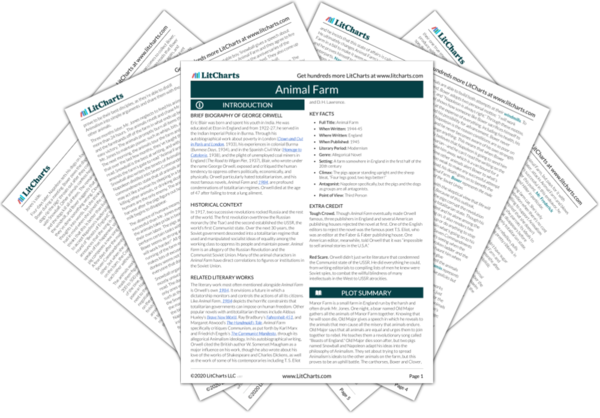Minor Characters
Moses
A tame raven and Mr. Jones’s special pet. The animals dislike him because he doesn’t work, but many of them do believe his stories about Sugarcandy Mountain, a wonderful place where animals go when they die. Moses represents organized religion, and specifically the Russian Orthodox Church.
Mr. Whymper
The solicitor whom Napoleon hires to represent Animal Farm to the outside world. He’s shrewd and calculating, and by the end of the novel, has done well for himself. Mr. Whymper represents the capitalists who got rich doing business with the USSR.
Minimus
A pig who writes propaganda poems and songs praising Napoleon and Animal Farm. Minimus represents the takeover of art by propaganda in a totalitarian state that aims to control what its citizens think.
Mrs. Jones
Mr. Jones’s wife.
